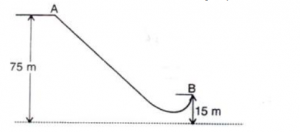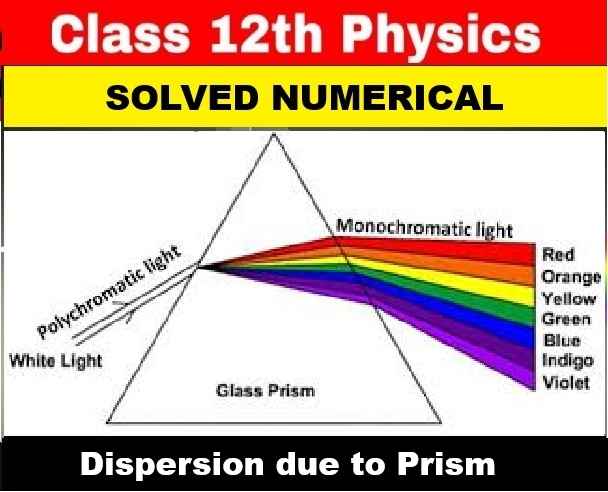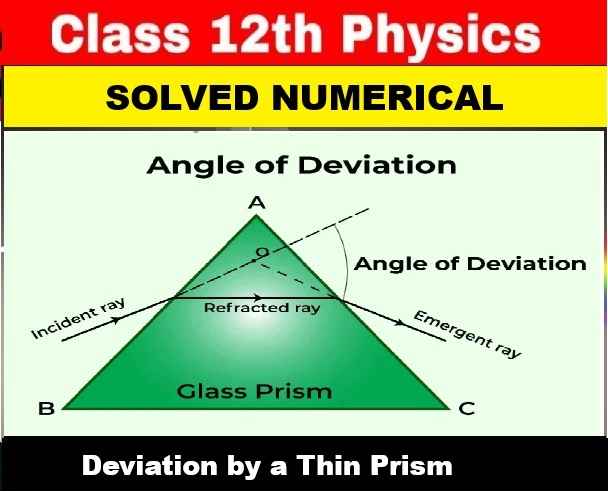MCQ Work Energy and Power for ICSE Physics Class-10 . These MCQ / Objective Type Questions is based on latest reduced syllabus according 2021-22 session on bifurcated pattern. Main motto of MCQ Type Question is cracking the next upcoming exam of council. Visit official website CISCE for detail information about ICSE Board Class-10 Physics.
Work Energy and Power for ICSE Physics Class-10 MCQ Type Questions
| Board | ICSE |
| Class | 10th (X) |
| Subject | Physics |
| Chapter | Work Energy and Power |
| Syllabus | on bifurcated syllabus (after reduction) |
| Session | 2021-22 |
| Topic | MCQ / Objective Type Question |
MCQ Type Questions Work Energy and Power for ICSE Physics Class-10
Question 1: A ball of mass m is thrown vertically up with an initial velocity so as to reach a height h. The correct statement is:
(a) Potential energy of the ball at the ground is mgh.
(b) Kinetic energy to the ball at the ground is zero.
(c) Kinetic energy of the ball at the highest point is mgh.
(d) Potential energy of the ball at the highest point is mgh.
Answer (d) Potential energy of the ball at the highest point is mgh.
Question 2: A pendulum is oscillating on either side of its rest position. The correct statement is :
(a) It has only the kinetic energy at its each position.
(b) It has the maximum kinetic energy at its extreme position.
(c) It has the maximum potential energy at its mean position.
(d) The sum of its kinetic and potential energy remains constant throughout the motion.
Answer (d) The sum of its kinetic and potential energy remains constant throughout the motion.
Question 3: A ball of mass 0.20 kg is thrown vertically upwards with an initial velocity of 20m/s-1. Calculate the maximum potential energy it gains as it goes up.
(a) 40 J
(b) 42 J
(c) 47 J
(d) 50 J
Answer (a) 40 J
Potential energy at the maximum height= initial kinetic energy 1/2 mv²
1/2* 0.20* 0*20*20 = 40 J
Question 4 A stone of mass 500g is thrown vertically upwards with a velocity of 15m/s-1. Calculate: (a) the potential energy at the greatest height, (b) the kinetic energy on reaching the ground (c) the total energy at its half way point.
(a) 48.25J
(b) 56.46J
(c) 57.25J
(d) 56.25J
Answer (d) 56.25J
(a) Potential energy at maximum height = initial kinetic energy
mgh = 1 / 2 mv2
= 1 / 2 × 0.500 × 15 × 15
= 56.25J
(b) Kinetic energy on reaching the ground = potential energy at the greatest height
= 56.25J
(c) Total energy at its halfway point = 1 / 2 (K + U)
= 56.25J
Question 5 A metal ball of mass 2kg is allowed to fall freely from rest from a height of 5m above the ground. What happens to the mechanical energy after the ball hits the ground and comes to rest?
(a) Mechanical energy converts into sound energy.
(b) Mechanical energy converts into heat and sound energy.
(c) Mechanical energy converts into heat energy.
(d) None of the above
Answer (b) Mechanical energy converts into heat and sound energy.
Question 6 The diagram given below shows a ski jump. A skier weighing 60kgf stands at A at the top of ski jump. He moves from A and takes off for his jump at B.

(a) Calculate the change in the gravitational potential energy of the skier between A and B.
(b) If 75% of the energy in part (a) becomes the kinetic energy at B, calculate the speed at
which the skier arrives at B.
(Take g = 10 m s-2).
(a) 3.6 × 104J and 30 m / s
(b) 4.6 × 105J and 35 m / s
(c) 3.6 × 107J and 30 m / s
(d) None of the above
Answer (a) 3.6 × 104J and 30 m / s
(a) Mass of skier = 60 kg
Loss in potential energy = mg (h1 – h2)
= 60 × 10 × (75 – 15)
= 60 × 10 × 60
= 3.6 × 104J
(b) Kinetic energy at B = 75 / 100 × 3.6 × 104
= 27000J
= 2.7 × 104J
Kinetic energy = 1 / 2 mv2
27000 = 1 / 2 mv2
27000 = 1 / 2 × 60 × v2
v2 = 27000 / 30
= 900
= 30 m / s
Question 7 A hydroelectric power station takes its water from a lake whose water level is 50m above the turbine. Assuming an overall efficiency of 40%, calculate the mass of water which must flow through the turbine each second to produce power output of 1MW.
(g=10 m s-2).
(a) 5500 kg
(b) 5550 kg
(c) 5050 kg
(d) None of the above
Answer (a) 5500 kg
Potential energy = mgh
Efficiency = 40 %
Useful work done = 40 % of potential energy
= 40 / 100 (mgh)
= 0.4 (m × 10 × 50)
= 200 m
Power = work done per second
1MW = 200 × mass of water flowing each second
1 × 106W = 200 × mass of water flowing each second
mass of water flowing each second = (1 × 106) / 200
= 5000 kg
Question 8 A boy drags a load ‘L’ along horizontal plane AB by applying a force F. The boy does

(a) no work
(b) some positive work
(c.) negative work
(d) none of these
Answer (b) some positive work
Question 9 The SI unit of work is joule. It is expressed in terms of mass, length and time as
(a) kg m2s-3
(b) kg m2s-2
(c) kg2 m2s-2
(d) kg m2s-2
Answer (a) kg m2s-3
Question 10 The SI unit of power is watt. It is expressed in terms of mass, length and time as:
(a) kg m2s-3
(b) kg ms-3
(c) kg2 m2s-2
(d) kg ms-2
Answer (a) kg m2s-3
Question 11 A stone resting on the roof ofa building has
(a) potential energy
(b) gravitational energy
(c) kinetic energy
(d) none of these
Answer (a) potential energy
Question 12 A falling raindrop has :
(a) only kinetic energy
(b) only potential energy
(c) both kinetic and potential energy
(d) none of these
Answer (c) both kinetic and potential energy
Question 13 One horse power is equal to :
(a) 764 W
(b) 746 W
(c) 700 W
(d) 1000 W
Answer (b) 746 W
Question 14 One electron volt is equal to :
(a) 6 x 10-17 J
(b) 6.1 x 10-19 J
(c) 6 x 10-19 J
(d) 1.6 x 10-10 J
Answer (c) 6 x 10-19 J
Question 15 Kilowatt hour is the commercial unit of:
(a) electric power
(b) electric energy
(c) electric force
(d) none of these
Answer (b) electric energy
Question 16 Power is the product of:
(a) force and velocity
(b) force and displacement
(c) force and acceleration
(d) force and time
Answer (a) force and velocity
Question 17 An aeroplane is flying at an altitude of 10,000 m at a speed of 300 km/hour. The aeroplane at this height has :
(a) only kinetic energy
(b) only potential energy
(c) both kinetic and potential energy
(d) zero kinetic and potential energy
Answer (c) both kinetic and potential energy
Question 18 Kilocalorie is the amount of heat required to raise the temperature of:
(a) one gram of water through 1°C
(b) 1 kg of water through 100°
(c) one kg of water through 1°C
(d) 1 kg of water through 10°C Arts.
Answer (c) one kg of water through 1°C
Question 19 When a flash light is switched on the electric energy
(a) directly changes to light energy
(b) first changes to light energy and then to heat energy
(c) first changes to heat energy and then to light energy
(d) none of above
Answer (b) first changes to light energy and then to heat energy
Question 20 A pendulum is swinging freely. The bob ofpendulum has:
(a) maximum K.E. at its extreme positions
(b) minimum K.E. at its mean position
(c) maximum K.E. at its mean position
(d) both (b) and (c)
Answer (c) maximum K.E. at its mean position
Question 21 A pendulum is oscillating freely. Its bob has :
(a) only kinetic energy
(b) maximum kinetic energy at extreme position
(c) maximum potential energy at its mean position
(d) a constant energy which is the sum of potential and kinetic energy
Answer (d) a constant energy which is the sum of potential and kinetic energy
Question 22 A ball of mass m is dropped from height ‘h ’.
(a) Potential energy of the ball at ground level is mgh.
(b) Potential energy of the ball at height h is mgh.
(c) kinetic energy of the ball at ground level is mgh
(d) both (b) and (c)
Answer (b) Potential energy of the ball at height h is mgh.
Question 23 A work of 1000 J is done on a body in 4 s, such that a displacement of 20 m is caused. Calculate
(a) force (b) power
(a) 50 N and 250 w
(b) 55 N and 250 w
(c) 50 N and 260 w
(d) 40 N and 350 w
Answer (a) 50 N and 250 w

Question 24 What force must be applied to a body through a distance of 10 m, such that it does a work of 4000 J. If the mass of the body is 20 kg, what is the acceleration of the body ?
(a) 25 ms-2
(b) 20 ms-2
(c) 28 ms-2
(d) 30 ms-2
Answer (b) 20 ms-2

Question 25 An engine of power 200 W, operates for 4 s. Find the work done by the engine. If the force developed by the engine is 100 N calculate the maximum displacement caused.
(a) 8 m
(b) 4 m
(c) 16 m
(d) 12 m
Answer (a) 8 m
Question 26 An electric pump is 60% efficient and is rated 2 HP. Calculate the maximum amount of water it can lift through a height of 5 m in 40 s. [Take g = 10 ms-2 and 1 HP = 750 W]
(a) 750 kg
(b) 620 kg
(c) 720 kg
(d) 650 kg
Answer (c) 720 kg
Power of lift pump = 2 HP

Question 27 Calculate the time for which a motor pump of 10 HP and efficiency 80% must be switched on, so as to pump 20 m3 of water through a vertical height of 20 m.[Density of water = 1000 kg m3; g = 10 ms-2; 1 HP = 750 W]
(a) 658.67 sec
(b) 666.67 sec
(c) 766.77 sec
(d) 886.67 sec
Answer (b) 666.67 sec

Question 28 In a hydroelectric power station, 1000 kg of water is allowed to drop a height of 100 in in ¡ s. If the conversion of potential energy to electric energy is 60%, calculate the power output.
(a) 8 x 103 w
(b) 12 x 105 w
(c) 6 x 108 w
(d) 6 x 105 w
Answer (d) 6 x 105 w

Question 29 A compressed spring is held near a small toy car of mass 0.15 kg. On the release of the spring, the toy car moves forward with a velocity of 10 ms’. Find the potential energy of the spring.
(a) 7.5 j
(b) 7.8 j
(c) 8.5 j
(d) 6.5 j
Answer (a) 7.5 j
mass of car m = 0.15 kg
velocity y = 10 ms-1
kinetic energy K.E. = 1/2 mv²
1/2 x(15/100) x 10 x 10 = 7.5 j
Question 30 A catapult throws a stone of mass 0.10 kg with a velocity of 30 ms-1. If 25% of the RE. of the elastic band is wasted during transmission, find the magnitude of the potential energy.
(a) 120 j
(b) 50 j
(c) 160 j
(d) 60 j
Answer (d) 60 j
Let pot. energy = RE.
P.E. wasted = 25%
P.E. used 100—25 = 75%

Question 31 A bullet of mass 0.2 kg, moving with a velocity of 200 ms-1 , strikes a stationary wooden target of mass 5 kg. If all the energy is transferred to the wooden target, calculate the velocity with which the target towards direction.
(a) 20 ms-1
(b) 80 ms-1
(c) 40 ms-1
(d) 45 ms-1
Answer (c) 40 ms-1
Let the other body (B) moves with kinetic energy of bullet = K.E. of wooden target (B)

Question 32 A scooter develops a power of 1 HP while running at 36 km hr-1. Calculate the force generated by its engine.
(a) 40 N(1/2)
(b) 75 N(1/2)
(c) 150 N(1/2)
(d) 72 N(1/2)
Answer (b) 75 N(1/2)

Question 33 The heart of a normal person beats 72 times in a minute and does a work of 1 joule per beat. What is power of the heart ?
(a) 1.2 w
(b) 3.6 w
(c) 2.4 w
(d) 1.5 w
Answer (a) 1.2 w
Work done per beat = 1 J
work done for 72 beats = 72 J
Power = (workdone/60 s) = 72/60 = 1.2 w
Question 34 An accelerated electron has energy of 9.6 x 10-18 J. Express the energy in electron volts (eV)
(a) 120 eV
(b) 240 eV
(c) 60 eV
(d) 150 eV
Answer (c) 60 eV

Question 35 Calculate the kinetic energy of a body of mass 5 kg momentum 50 kg ms-1
(a) 550 j
(b) 500 j
(c) 200 j
(d) 250 j
Answer (d) 250 j
Mass m = 5 kg
move (Questions from ICSE Examination Papers) (Questions from ICSE Examination Papers) mentum p = mv = 50 kg ms-1
5 V = 50
v = 50/5
= 10 ms-1
K.E. = 1/2 x 5 x 10 x 10 = 250 j
–: End of ICSE Physics Class-10 Machine MCQ Type Questions :-
-: also visit :-
ICSE Class-10 Text book Solutions, Notes , Syllabus, Paper, Notes
Please share with your ISC friends if it is helpful
thanks



How can I visit here everyday please
first open chrome and search icsehelp.com
select icsehelp and open it
home page appear on screen
choose icse 10
scroll down till sem-1
click on mcq type question
or simply call on 8957797189